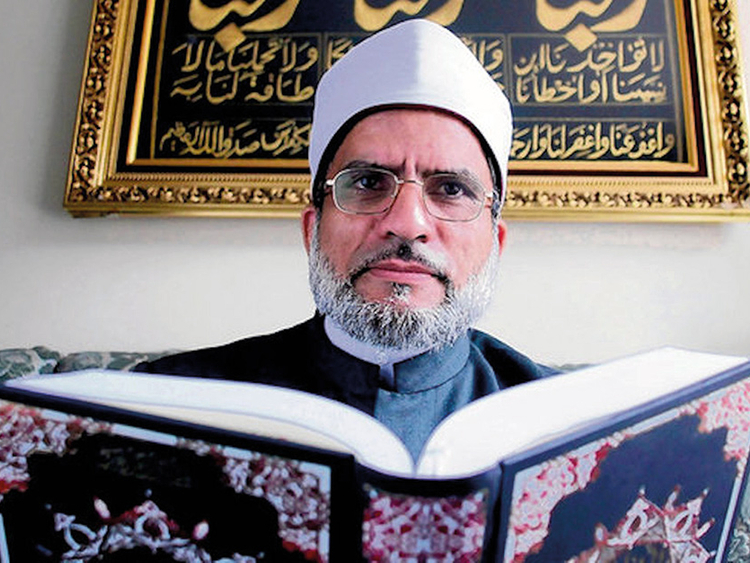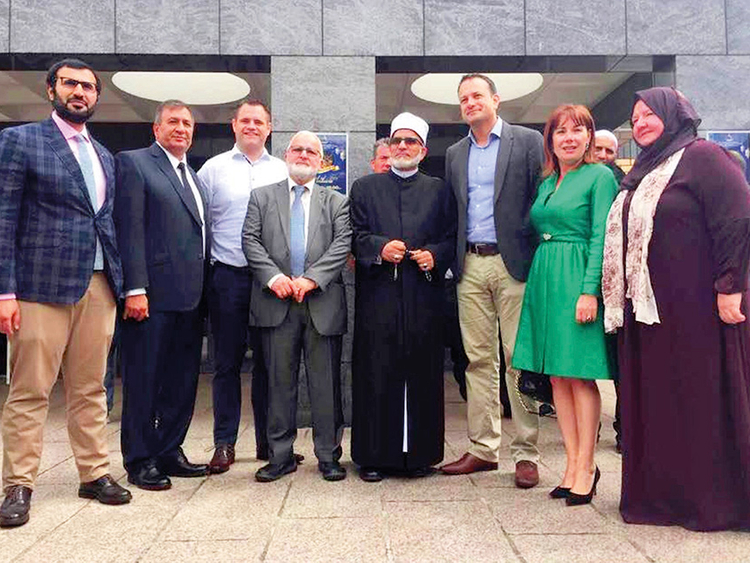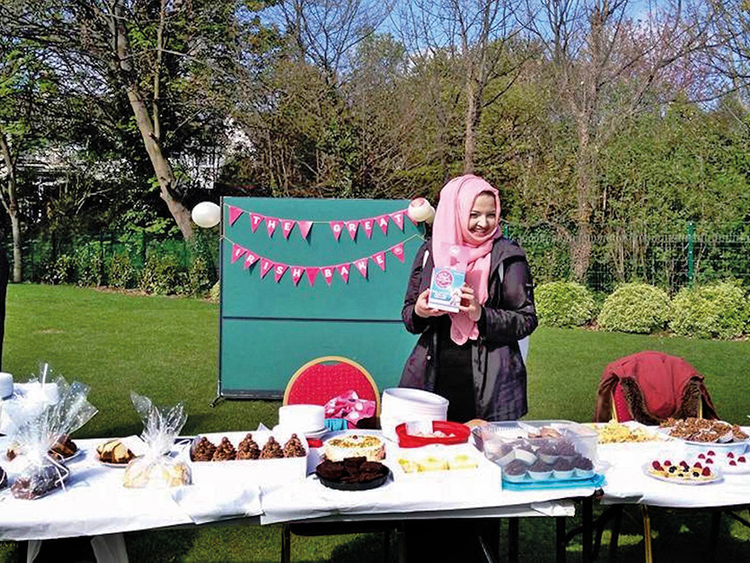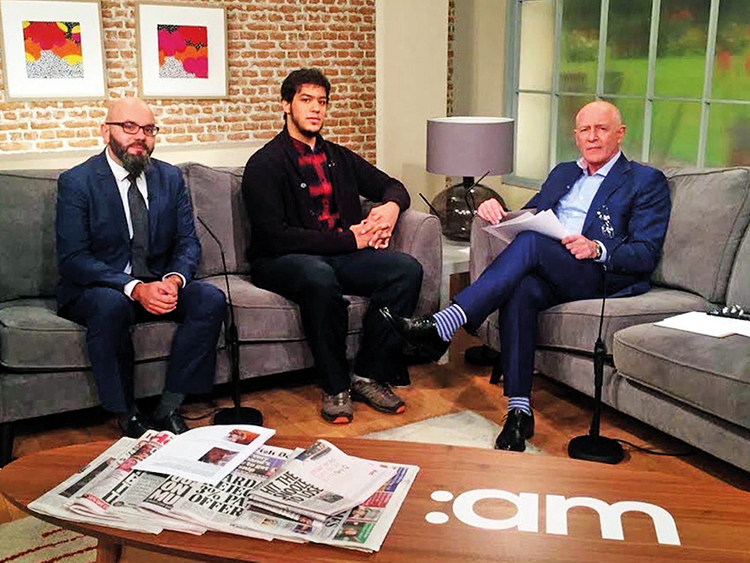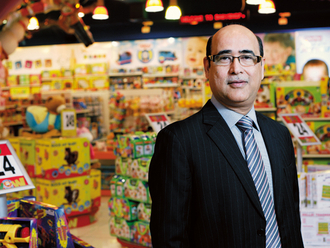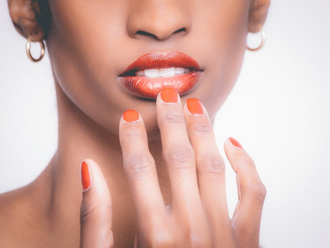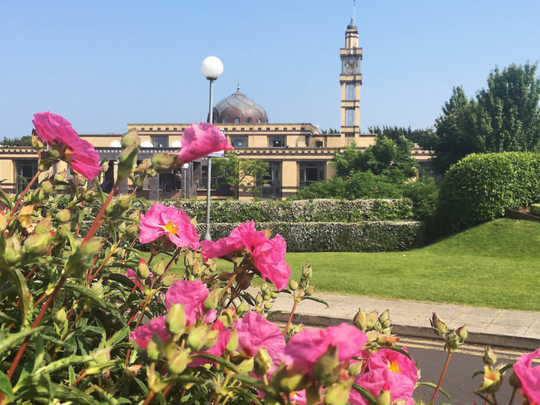
As the Irish would say, Ballyhaunis is in the middle of nowhere. Dublin is a good three-hour drive away over some bad roads.
There are two trains that run daily through the small town’s sleepy station which has somehow avoided being shut down in the face of too few passengers at too high a cost.
And Mayo County Council never seems to have enough money to fill all the potholes on the local roads — and there are a lot. Ballyhaunis sits in a soft, boggy and rain-driven landscape that constantly breaks up the asphalt road surfaces.
For generations, it was the type of small town that people fled as soon as they were old enough to make their way to Dublin, England, Boston or New York. It’s the ‘here’ as in anywhere but here — it’s where people come from, not go to.
But that has changed.
Over the past decade, Ballyhaunis’s population has grown steadily, and there are almost 3,000 people living here. It’s now officially Ireland’s most diverse town, according to the 2011 national census, where just 40 per cent are locals.
Indeed, it has had a mosque since the early 1970s — long a religious and cultural anachronism in a nation that was 95 per cent Roman Catholic.
The wet grassland and boggy landscape around Ballyhaunis was good for something — rearing cattle — and a meat-packing plant followed.
It was the early days of Ireland in the European Common Market, the precursor to the European Union, and eager to sell Irish beef abroad, the meat had to certified halal — slaughtered according to Islamic law. Where Muslims came, a mosque followed.
But Ireland was still a deeply Catholic society where Sunday mass was a focal point of the week, where the priest was the moral authority, where the church controlled the educational system, and where even football and hurling teams were organised at the parish level.
The Catholic church too has a special place, constitutionally enshrined for the special place and role it played in Irish society.
When Manar Chabatji, for example, came to Ballyhaunis in 1988 from her native Syria and wore her hijab, people stopped her in the street and asked her if she was a Catholic nun, mistaking the headscarf for a nun’s veil.
Today, the town’s Gaelic football and hurling teams are made up of 15 players each from youths of all walks and religions of life.
“Yes,” says Shaikh Omar Al Qadri. “It’s hard to believe but Ballyhaunis had one of the first mosques in Ireland and today has a thriving Muslim community.”
Shaikh Omar is the imam at the Al Mustafa Islamic Centre in Blanchardstown, the largest gathering place for Muslims living in Dublin’s sprawling north western suburbs.
“We believe there are 70,000 Muslims living in Ireland at the moment and the very large community enjoys a tremendously warm and cordial relationship with our Irish brothers,” he tells Weekend Review.
For centuries, Ireland was known colloquially as the “Ireland of saints and scholars.” Now, thanks its thriving Muslim community, it could just as easily be called the island of saints, scholars and shaikhs.
‘So many similarities’
“There are so many reasons why Islam has taken root so firmly in Ireland but I believe it boils down to the fact that there are so many similarities.
Both have a tremendous sense of society, of caring for others, and there is a deep spiritual history in Ireland.
It has been, and continues to be, a place where religion and religious values are deep-seated, even if organised religion has waned in the past decade.”
The Netherlands-born Shaikh Omar moved to Ireland in 2004 and is also chairman of the Irish Muslim Peace and Integration Council.
His sons were born in Ireland and he would love nothing better than to see them grow up and play Gaelic football for the Dublin county team.
Officially, there are 63,400 Muslims living in Ireland out of a population of 4.75 million — the vast majority of those ticked ‘Catholic’ as their faith on the census forms — and the 2016 census suggests that the faith will be Ireland’s second largest by the time the 2031 census is taken, judging by its current growth rate.
Shaikh Hussain Halawa is the Imam of the Islamic Cultural Centre of Ireland (ICCI) and the head of the Irish Council of Imams.
The Irish Council of Imams is made up of 35 imams from both Sunni and Shiite mosques across Ireland and was established to enhance communication between followers and to set a common date for the beginning of Ramadan, the Muslim month of fasting.
“The growth of the Muslim community in Ireland is due to two reasons,” Shaikh Hussain said.
“The current global events and their changes, and the other reason is the majority of Muslims prefer to stay in stability, tranquillity and peace.” And Ireland offers that, making for peaceful coexistence and nurturing a special relationship between the Irish and Islam.
“Of course, there is a strong relation between Muslims and the Irish people,” the Shaikh says.
“Muslims are a part of the community. Muslims would be influenced by the good and bad, joys and sorrows as events occur. Muslims are always seeking integration and positive coexistence in society.”
Marwan Akari is the outgoing chairman of the Federation of Student Islamic Societies and studied structural engineering at University College Dublin (UCD). His parents were Libyan refugees and he was born in Jordan, arriving in Ireland when he was two.
“I was walking home, and I was walking by one of the pubs on the way to the tram,” he said recently. A drunk man walked out of a pub and slapped him on the shoulder.
“He said, ‘You’re a good man, a good man,’ and just walks back in. It was because he obviously saw that I was Muslim. He was really nice for absolutely no reason. Our parents would be positive about the Irish people. It has been said that because of the Irish peoples’ experiences during the IRA campaign they are more understanding of how Muslim people feel.”
For three decades, the Irish Republican Army engaged in a terrorist campaign, mainly in Northern Ireland, to try and unite the British-government province with the Irish Republic to the south.
That resulted in the deaths of more than 3,600 people and security force members in what was then Europe’s longest violent conflict.
Ireland was divided in 1921, leaving a minority of Catholics in Northern Ireland without adequate civil rights and facing sectarian discrimination from a majority of pro-British loyalists.
It’s a point that’s picked up by Yara Al Agha, a 19-year-old languages student at UCD.
Both Araki and Al Agha took part in a recent panel organised by the Irish Times on young Muslims and how they see themselves fitting into the Irish society.
Now, essentially, there is a first generation of Irish-born Muslims who are taking their place confidently in Irish society.
Al Agha, for example, was born in Ireland but her parents are part of the Palestinian diaspora, and she describes herself also as a Palestinian. She’s quick to praise the relationship between Irish people and the Palestinian cause.
“Any Palestinian event I’ve been to, the majority of people are Irish, and they can empathise with us [Palestinians], because essentially they’ve been through the same thing. I think that applies to any minority in the country.”
Indeed, in Irish republican and nationalist areas of Northern Ireland, Palestinian flags are flown alongside the Republic of Ireland’s tricolour.
Similarly, in loyalist areas of the province, where support is strong to ensure Northern Ireland remains an integral part of the United Kingdom, Israeli flags fly alongside Union Jacks and Ulster flags.
Since the Good Friday Agreement signed two decades ago, peace has largely taken root in Northern Ireland, the special status of the Catholic church in the Irish Constitution has been removed but tensions between the Catholic nationalist and Protestant loyalist communities remain raw. In the south, however, there’s little if any friction between the Muslim and non-Muslim communities.
Historic ties
Drogheda United are a half-decent professional team playing football in the Premier League of Ireland.
When its best eleven take to the grass in football grounds around the country, they are wearing a club badge that commemorates one episode during the great Irish famine of 1845-47.
Before the famine, Ireland’s population stood at eight million. Once the potato crop, on which so many relied as their main source of food, was severely affected by a blight, widespread hunger ensured.
A million people are estimated to have died and Ireland’s population fell to just four million, with many emigrating to the nascent lands of America, Australia and Canada — or to the industrial cities across the United Kingdom.
Drogheda United’s emblem features a heraldic star and crescent, a reminder of 1845 when Ottoman Sultan Abdul Mecid pledged the then princely sum of £1,000 (Dh5,200) for famine relief in Ireland.
He later sent three ships with food but their entry to Dublin was blocked. However, the sailors managed to unload the supplies at Drogheda, at the mouth of the River Boyne, about 60 kilometres north of the capital.
Contemporary records at the time note a letter of thanks sent to the Sultan. Historical records of the time also note that Queen Victoria allowed for a donation from the royal household of £100 for famine relief measures in Ireland, and £200 to Battersea Cats and Dogs home.
The earliest mention of Ireland in Islamic literature is in the works by Al Idrisi, who referred to Irlandah Al Kabirah (Great Ireland) and details a slaving and pirate raid in west Cork on June 20, 1631.
In the 1950s, Dublin’s medical and universities were fast-gaining an international reputation for learning and teaching excellence. It was a draw that didn’t go unnoticed in the Muslim world.
The first Islamic Society was founded in 1959 by medical students at the Royal College of Surgeons in Ireland — today it also runs the main medical teaching university in Bahrain — the National Maternity Hospital and at Trinity College Dublin and UCD. But there was no mosque.
Instead, the society met in homes and then rented parish halls next to Catholic churches for Friday prayers.
Eventually, the society raised enough money to buy a four-storey building off Dublin’s South Circular Road in 1976.
The society’s records say the purchase of the first cultural centre was made possible by donations from the late King Faisal Bin Abdulaziz Al Saud of Saudi Arabia, and the first full-time imam was made possible through a donation from Kuwait’s Ministry of Endowment and Islamic Affairs.
It was slow and small beginnings, but one that has taken root. According to the 1991 census, 3,873 people in the Republic of Ireland listed Islam as their religion.
Most were believed to be from Bosnia, Kosovo and Somalia, as well as asylum seekers, workers in the Halal meat sector as well as medical professionals and students from Islamic countries.
By 2002, that number showed nearly 400 per cent increase, with 19,147 ticking the Islam box on their census forms. By the 2011 census, there were 49,204, to the 63,400 in the 2016 census.
Why the growth?
The growth rate is all the more notable in that unlike the UK or France, Ireland does not have any history of colonisation of territories in the Muslim world, nor are there traditional ties based on economic links, as occurred between Turkey and Germany in West Germany’s reconstruction efforts in the decades after the Second World War.
The growth can’t be explained either by a large and sudden influx of refugees from Syria over the past five years either.
In 2016, Ireland accepted 760 refugees out of an allotted EU quota of 1,100 and has agreed to take in 4,000 in total.
“There are many common values,” explains Shaikh Hussain. “Irish society is classified as a religious society.
It strongly rejects and condemns all forms of violence such as drugs and all crimes.
The Irish community has been under occupation for hundreds of years, just like the Muslim countries from which the Muslims now living in Ireland belong to originally. So, Muslims and Irish society share the same values.”
Since 2003, for example, the Quran has been translated into Gaelic, the official language or Ireland, though one that’s not in everyday use.
The arrival of 4,000 Syrian refugees hasn’t dented the close relationship between Muslim and non-Muslim communities.
In a poll conducted across 12 European nations by the International Rescue Committee (IRC) and published last November, Ireland was ranked as being the most sympathetic towards the arrival of Syrian refugees.
Almost nine out of 10 — 87 per cent — expressed sympathy towards Syrian refugees arriving on the island. Ireland was followed by Spain at 86 per cent and then Germany.
Less than one-in-four Irish polled said they believed Syrian refugees would be a risk to state security. The ICCI and other Muslim and community groups have been active in helping resettle the refugees.
Whatever the reason, it’s certainly a special relationship that has drawn the support of the Dubai-based Al Maktoum Foundation, and there are close ties between the Ruling Family, the Al Maktoum Foundation, Ireland and the Islamic Culture Centre of Ireland (ICCI), that’s headed up by Shaikh Hussain.
So how exactly did the Al Maktoum Foundation become involved in establishing the Islamic Cultural Centre of Ireland, the ICCI?
“Shaikh Hamdan Bin Rashid Al Maktoum, the Deputy Ruler of Dubai and Minister of Finance, was on a visit to Ireland,” Shaikh Hussain tells Weekend Review. The year was 1992 and Shaikh Hamdan met with Emirati students who were studying medicine. They asked him to help establish an Islamic centre in Dublin.
“He immediately agreed to build it to achieve integration, coexistence and stability for Muslims in Ireland and since then has been financially supporting all the services that the ICCI needs.”
That was the start of the work of the Al Maktoum Foundation’s long-standing and deep relationship in Ireland. At the same time, the foundation began works that now extend to at least 69 countries around the world.
Construction of the Islamic Cultural Centre began in 1993, and on November 16, 1996 it was officially opened by then Republic of Ireland President Mary Robinson and Shaikh Hamdan.
In 1997, the foundation began its educational programme in Africa, building 10 fully equipped high schools. Now the foundation has nearly 40 schools under its wing in 20 African nations across the continent and has expanded its works to third-level institutions and colleges as well.
Thanks to the foundation, the ICCI now is a state-of-the-art culture and community centre in a 5,000 square-metre building in Clonskeagh, a leafy suburb close to the edge of the Dublin Mountains on the toney south side of the city that’s close to the main campus of UCD.
Focal point
The opening of the ICCI signalled a fresh new start in the ties between the Irish and Muslim communities, and is at the centre of the harmonious relations between the two faiths and in spreading tolerance and understanding.
Although the ICCI doesn’t pretend to represent the whole Muslim community in Ireland, it has successfully become a focal point for authorities, non-governmental organisations and groups for everything related to Islam and Muslims in the Republic of Ireland.
The ICCI is used a community base for Muslims in the Irish capital and as a centre for study and learning.
Thanks to its peaceful practice of coexistence between faiths, the centre has also been successful in building fruitful relations with the Irish Churches through continuous dialogue and exchange of visits over the past 20 years.
In particular, the centre has been active in inter-faith dialogue where common issues are discussed in a manner that serves mankind and promotes international peace.
“The Islamic Cultural Centre of Ireland offers daily worships and all the services needed by the Muslim community in Ireland and maintains relations with the Irish organisations explaining the tolerant teachings of Islam,” Shaikh Hussain says.
“And it provides educational services to the Muslim community in Ireland through various educational means — for instance the Nour Al Huda Quranic school — and as well as offering programmes for adults, and receiving delegations from Irish schools and as well as universities, to introduce Islam and provide programmes for families in addition to the weekly religious lessons and Friday sermon.”
Is that part of the reason why relations between Muslims in Ireland and the broader community have not deteriorated nor experienced Islamophobia, as is the case in the UK or elsewhere?
“Irish people are more accepting than other countries,” Al Agha, the language student, said. “When I started wearing the headscarf, for example, I was really nervous. I remember going in that day, and everyone was extra nice because they knew the struggles and were accepting of it.”
She said that recently, she, her sister and a friend, who all wear the headscarf, were in a coffee shop and the man working there gave them all free chocolate bars.
“We were thinking maybe it was because we were Muslim and he was being extra nice to us. I have found that people go out of their way to be extra nice. I think that’s instilled in Irish culture — hospitality is really important.”
There was one protest by a group called Identity Ireland, who protested outside the ICCI’s Clonskeagh centre earlier in the year. The protest fizzled out, however, when Dubliners organised rallies and meetings in support of Islam and condemned the racist protest.
“If you get to the stage where the state normalises racism, xenophobia, like France did with the burkini ban, it automatically promotes racism,” Al Agra noted. “I think we’re lucky in that sense as well, in that Ireland doesn’t condone racism.”
For Shaikh Hussain, the support of non-Muslim Irish is not to be taken for granted.
“Irish Muslims and non-Muslims are in the same boat,” he says. “All are seeking positive cooperation to achieve true citizenship and shielding society against dangers. Muslims and non-Muslims are exerting efforts in every field leading to reconciliation, social harmony, good communication and reciprocal mercy and shunning violence, since they help achieve good and social objectives.”
After more than two decades living in Ireland, Shaikh Hussain believes that the main challenge facing Muslims in Ireland is Islamophobia and hostile anti-Islamic movements in Europe in general.
“We consider ourselves less threatened than others in this regard,” he notes pointedly.
The Irish Council of Imams, headed up by Shaikh Hussain, plays an active role in condemning and speaking out against forces that undermine the positive role of Islam. But despite its work, Shaikh Omar is convinced that all Muslims living in Ireland — not just the Council of Imams itself — should be speaking out to condemn terrorism in all its forms, and identify and isolate those who inspire radical elements.
“Islam is like fire,” Shaikh Omar says. “It warms and spreads quickly. But some are burnt by it. The Irish like the warmth.”
Mick O’Reilly is the Gulf News’ Foreign Correspondent based in Madrid.



